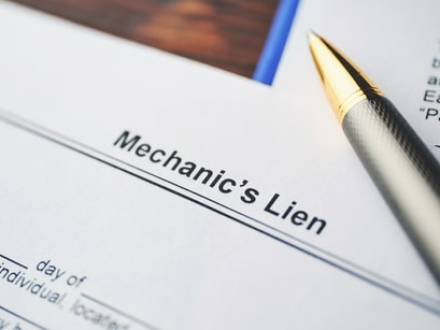Recent Blog Posts
What Should You Review Before Signing a Commercial Contract?
 Before signing a commercial contract, there are several elements you should review. These terms decide what your business must do and what happens if something goes wrong. Many business disputes start with contracts. According to the U.S. Courts, more than 30,000 contract cases were filed in federal courts during one year, showing how often business agreements lead to legal disputes.
Before signing a commercial contract, there are several elements you should review. These terms decide what your business must do and what happens if something goes wrong. Many business disputes start with contracts. According to the U.S. Courts, more than 30,000 contract cases were filed in federal courts during one year, showing how often business agreements lead to legal disputes.
As of 2026, Illinois courts enforce commercial contracts based on the written terms. This means business owners across DuPage County are usually bound by what they sign. Our Wheaton, IL business contract lawyers help business owners review contracts so they can avoid unnecessary risk.
Filing for Divorce in Illinois
 Filing for divorce is a major life decision, and many people feel unsure about where to start. Divorce remains common across the country. In 2025, data from the National Center for Family and Marriage Research reported a refined divorce rate of about 14.2 divorces per 1,000 married women in the United States. Illinois divorce law focuses on clear procedures, fairness, and resolving disputes in a practical way whenever possible.
Filing for divorce is a major life decision, and many people feel unsure about where to start. Divorce remains common across the country. In 2025, data from the National Center for Family and Marriage Research reported a refined divorce rate of about 14.2 divorces per 1,000 married women in the United States. Illinois divorce law focuses on clear procedures, fairness, and resolving disputes in a practical way whenever possible.
If you are thinking about ending a marriage in 2026, speaking with Glen Ellyn, IL divorce lawyers can help you understand what is involved in filing and how Illinois law applies to your situation.
Who Can File for Divorce in Illinois?
Either spouse may file for divorce in Illinois. The legal term used by the courts is dissolution of marriage. Under 750 ILCS 5/401, at least one spouse must have lived in Illinois for a minimum of 90 days before filing for divorce in the state. This is a requirement before the court can move forward with the case.
How Can I Use My Estate Plan To Protect My Family From Probate?
 As of 2025, Illinois law allows several estate planning tools that can reduce or avoid probate. The probate process can raise concerns about delays, costs, and privacy. With the right estate plan, you can take steps to reduce how much court involvement your family may face, and our experienced Wheaton, IL estate planning lawyers can help.
As of 2025, Illinois law allows several estate planning tools that can reduce or avoid probate. The probate process can raise concerns about delays, costs, and privacy. With the right estate plan, you can take steps to reduce how much court involvement your family may face, and our experienced Wheaton, IL estate planning lawyers can help.
What Is Probate in Illinois and Why Do Families Try To Avoid It?
Probate is the legal process used to settle a person’s estate after death. It involves validating a will, paying debts, and distributing property. These cases are handled under the Illinois Probate Act. Probate is not always a bad experience. However, families prefer to avoid it because it can delay access to assets, increase expenses, and expose private matters to the public record.
When Can You Get an Uncontested Divorce in Illinois?
 An uncontested divorce is faster, cheaper, and less painful than a contested divorce, but it requires cooperation and compromise from both spouses. If you and your spouse are interested in getting an uncontested divorce, speak with our Wheaton, IL divorce attorneys today.
An uncontested divorce is faster, cheaper, and less painful than a contested divorce, but it requires cooperation and compromise from both spouses. If you and your spouse are interested in getting an uncontested divorce, speak with our Wheaton, IL divorce attorneys today.
What Are the Requirements for an Uncontested Divorce in Illinois?
Under 750 ILCS 5/401, at least one spouse must have lived in Illinois for at least 90 days before filing for divorce in the state. This ensures Illinois courts have jurisdiction over your case.
You must have a written settlement agreement covering all issues. Illinois courts will not grant an uncontested divorce based on verbal agreements or vague understandings; everything must be in writing and signed by both spouses.
Can I Ask My Employee to Sign a Non-Compete in Illinois?
 For many Illinois business owners, protecting trade secrets and competitive advantages is a top priority. One of the most common ways to safeguard these interests is through a non-compete agreement. These contracts restrict an employee from joining a competitor or starting a similar business for a certain period after leaving your company.
For many Illinois business owners, protecting trade secrets and competitive advantages is a top priority. One of the most common ways to safeguard these interests is through a non-compete agreement. These contracts restrict an employee from joining a competitor or starting a similar business for a certain period after leaving your company.
However, recent changes in both Illinois state law and federal policy have significantly limited when and how employers can use non-competes. If your business operates in DuPage County, check with a Wheaton business law attorney before asking an employee to sign one.
What Does Illinois Law Say About Non-Compete Agreements?
Illinois does not prohibit non-compete agreements outright, but as of October 2025, the Illinois Freedom to Work Act (820 ILCS 90/) still places strict limitations on when they can be used.
How Much Time Do I Have to File a Civil Lawsuit in Illinois?
 When you are involved in a legal dispute, time is not on your side. Illinois law sets strict deadlines called statutes of limitation that determine when you need to file a civil lawsuit by. Missing these deadlines could mean missing out on receiving any compensation, even if your case is strong. If you are considering taking legal action, talk to a DuPage County, IL civil litigation attorney as soon as possible to make sure you are keeping track of important timelines.
When you are involved in a legal dispute, time is not on your side. Illinois law sets strict deadlines called statutes of limitation that determine when you need to file a civil lawsuit by. Missing these deadlines could mean missing out on receiving any compensation, even if your case is strong. If you are considering taking legal action, talk to a DuPage County, IL civil litigation attorney as soon as possible to make sure you are keeping track of important timelines.
What Are Statutes of Limitation in Illinois?
A statute of limitation is a law that sets a deadline for filing a lawsuit. Once the deadline passes, courts usually will not hear your case, no matter how much evidence you may have to support your claims. These deadlines are meant to ensure that disputes get resolved without unnecessary delay, preventing claims from growing stale with lost evidence or fading memories.
How to Get Started on a Basic Estate Plan
 Young parents and professionals in Illinois often put off estate planning because it feels overwhelming or unnecessary. After all, if you are still early in your career or just starting a family, you may think you do not own enough to need a plan. But the truth is that every adult should have at least a basic estate plan, no matter their age or wealth. Having a plan in place is one of the most reasonable and responsible steps you can take to protect your loved ones.
Young parents and professionals in Illinois often put off estate planning because it feels overwhelming or unnecessary. After all, if you are still early in your career or just starting a family, you may think you do not own enough to need a plan. But the truth is that every adult should have at least a basic estate plan, no matter their age or wealth. Having a plan in place is one of the most reasonable and responsible steps you can take to protect your loved ones.
At NN Legal Group, our Wheaton, IL estate planning attorney provides free consultations to help young families take the first steps. We are committed to making sure every client understands their options clearly.
What Is an Estate Plan?
An estate plan is a set of legal documents that describe what will happen to your assets, your children, and your healthcare if something happens to you. Even a simple plan can prevent confusion and reduce stress for your loved ones. In Illinois, a basic estate plan usually includes:
Can Children Testify in Their Own Custody Cases in Illinois?
 When parents in Illinois cannot agree on child custody, known as the allocation of parental responsibilities in Illinois, the judge must decide what is in the child’s best interests. In some cases, that includes hearing directly from the child. But children do not automatically have the right or obligation to testify.
When parents in Illinois cannot agree on child custody, known as the allocation of parental responsibilities in Illinois, the judge must decide what is in the child’s best interests. In some cases, that includes hearing directly from the child. But children do not automatically have the right or obligation to testify.
Whether and how children can voice their opinions in court depends on several factors, including their age, maturity, and the sensitivity of the case. To find out whether your child might be able or required to offer testimony, speak with an experienced DuPage County, IL family law attorney about your case.
How Old Does a Child Have to Be to Testify in Illinois Family Court?
Illinois law does not set a minimum age for a child to testify in a custody case. Instead, the judge decides whether the child is mature enough to express a sensible, reasoned preference. In general, courts are more likely to consider the opinion of a child who is at least 12 or 13 years old, but even younger children may be allowed to speak if they seem emotionally and mentally able to do so.
The Pros and Cons of Buying and Selling "As-Is"
 While the real estate frenzy has marginally settled down, it remains a seller’s market. Because of this, as a buyer, you are more likely to consider a property advertised as-is, and as a seller, you may be more likely to sell your property as-is. When a home is sold as-is, there are no obligations on the part of the seller to provide repairs, although any known problems must be disclosed.
While the real estate frenzy has marginally settled down, it remains a seller’s market. Because of this, as a buyer, you are more likely to consider a property advertised as-is, and as a seller, you may be more likely to sell your property as-is. When a home is sold as-is, there are no obligations on the part of the seller to provide repairs, although any known problems must be disclosed.
A home sold as-is is being sold in its current state, with no upgrades or improvements prior to the sale. Whether you are a buyer or seller, there are pros and cons to an as-is real estate listing. It is always a good idea to discuss your real estate purchase or sale with an experienced Glen Ellyn, IL real estate lawyer. When you have an experienced real estate attorney by your side, you gain peace of mind, knowing you have a legal advocate looking out for you.
Illinois Sees Significant Changes in 2025 for Mechanics’ Liens
 Significant changes regarding how Illinois subcontractors can deliver lien notices began on January 1, 2025. The Illinois Mechanics Lien Act governs liens across the state, and the updated law is expected to provide clearer timelines and more flexible delivery options. The updates also reinforce the process that protects lien rights.
Significant changes regarding how Illinois subcontractors can deliver lien notices began on January 1, 2025. The Illinois Mechanics Lien Act governs liens across the state, and the updated law is expected to provide clearer timelines and more flexible delivery options. The updates also reinforce the process that protects lien rights.
Whether you are a homeowner with a mechanic’s lien on your property or a contractor or subcontractor who needs to ensure all legal requirements are met when filing a mechanic’s lien, it can be beneficial to speak to a Glen Ellyn, IL civil litigation attorney who will work with you to negotiate a resolution to lien disputes.
What Is a Mechanic’s Lien?
Mechanic’s liens are specific to the construction industry. Unpaid parties with a security interest in a property can file a mechanic’s lien, which guarantees payment to contractors and subcontractors in the event the property is sold. Mechanic’s liens are sometimes necessary to secure construction help on a project.

















